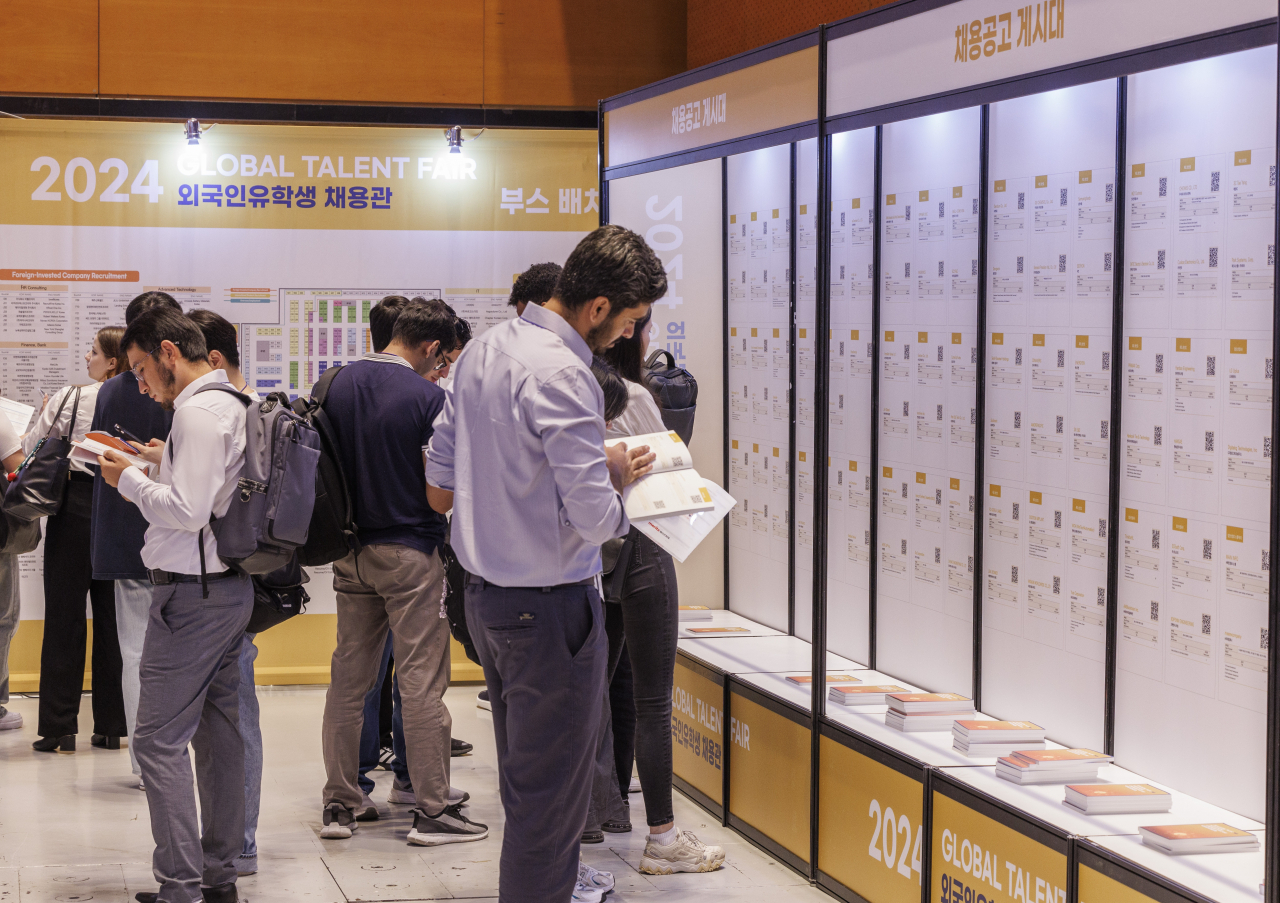 |
Foreign national students read hiring notices at a job fair in Seoul, Aug. 27. (Yonhap) |
Government data showed Friday that the number of foreign workers victim to occupational accidents has increased every year since 2019, indicating that this year's figure could exceed the 10,000 mark for the first time ever.
From January to August of this year, there were 6,715 reported cases of occupational accidents with foreign national victims here, according to the Ministry of Employment and Labor data submitted to Rep. Kim Ui-sang of the ruling People Power Party. The figure rose every year from 8,054 in 2019 to 8,062 in 2020, 8,555 in 2021, 8,886 in 2022 and 9,543 in 2023.
Currently, the monthly average for this year stands at 839 -- higher than the monthly average of any previous year. Should this trend persist, the total number of cases this year could theoretically exceed the 10,000 mark.
Statistics Korea announced in April that 1.43 million foreign nationals were living in South Korea as of last year, up 9.9 percent compared to the previous year to mark the highest number ever.
Over half -- 66.8 percent -- of the job-related accidents occurred at businesses with less than 50 employees. An overwhelming majority of them occurred in the fields of manufacturing and construction, which accounted for 2,574 cases and 2,451 cases, respectively.
"We need to thoroughly inspect the working conditions of the 1.43 million foreign nationals who help sustain the (country's) industries in difficult environments ... There need to be safety measures for smaller businesses that have substandard safety protocols, and other custom measures for foreign nationals who are not fluent in Korean," Kim said.
More than half of those who fell victim to accidents in the workplace were Chinese nationals, including Korean Chinese -- also called joseonjok -- who accounted for 47.9 percent. This was followed by 6.1 percent for Vietnamese and 5.3 percent for Uzbek people.







![[Weekender] Korea's traditional sauce culture gains global recognition](http://res.heraldm.com/phpwas/restmb_idxmake.php?idx=644&simg=/content/image/2024/11/21/20241121050153_0.jpg)